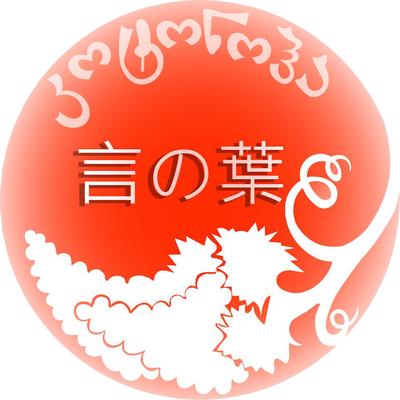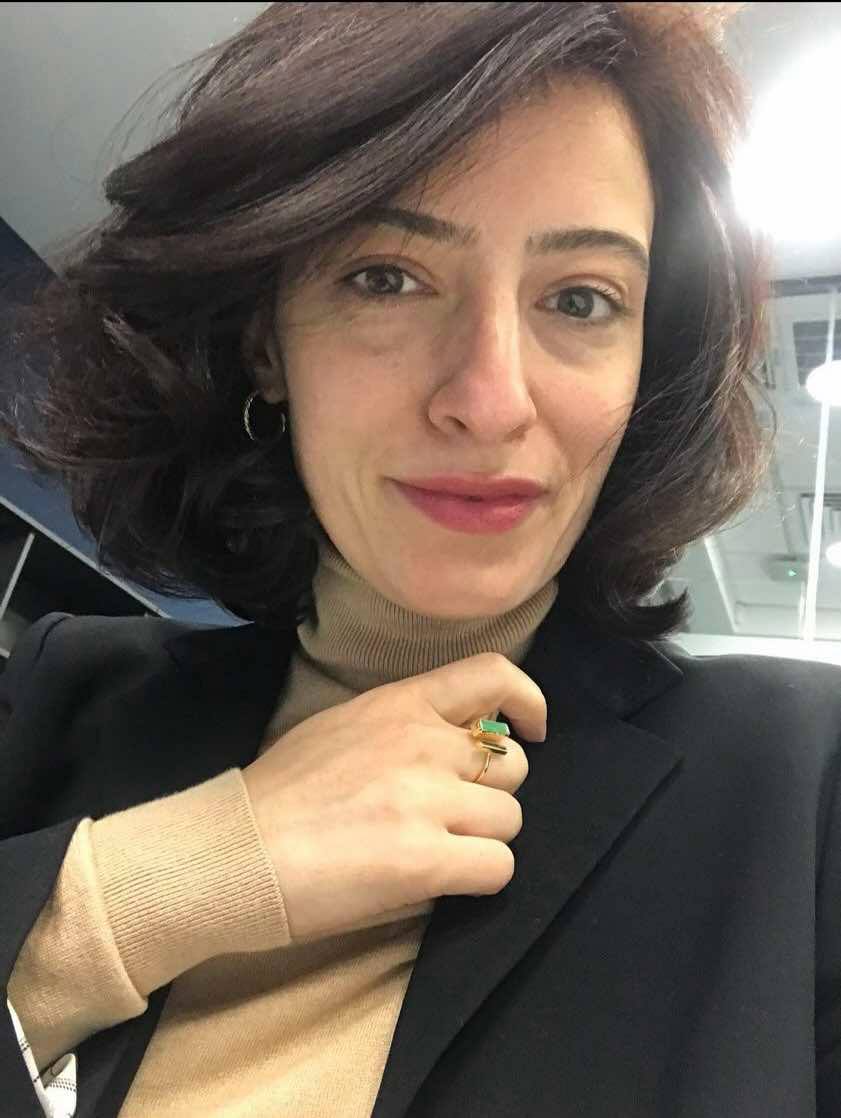【Profile】
Born in Georgia. Mainly lived abroad in Czechia, Russia, and Japan. Studied Japanese and English at Palacký University Olomouc in Czechia. Later completed a master’s degree at Kibi International University in Okayama, Japan. After returning to Georgia, worked primarily in international companies.
―― What was your motivation to start leaning Japanese?
Rusdan san:The reason I wanted to learn Japanese actually came from my Czech language teacher. During my final year of high school, I was in Czechia, but I still hadn’t decided what to study at university. At the time, I was learning Czech from a Czech teacher, and one day she said to me, “Rusudan, you learn languages quickly—how about studying Japanese at university? Recently, learning Japanese has become quite popular.”
Moreover, my Czech teacher had a friend who was a Czech native and also a Japanese language teacher. She not only taught Japanese but also worked for a Japanese company. I found her incredibly impressive, and my admiration for her led me to choose Japanese as my major at university in Czechia
――You studied abroad in Japan—what inspired you to make that decision? Also, what was your experience like as an international student in Japan?
Rusdan san:I studied Japanese for four years at a university in Czechia, but I wanted to improve further, so I decided to study abroad in Japan. Through an acquaintance, I learned about a Japanese language school in Okayama Prefecture, where I studied Japanese for a year. Within that year, I was able to pass the JLPT N1. Wanting to continue learning, I decided to pursue graduate studies in Japan. I took the entrance exam in Japanese like Japanese students and was accepted into the master’s program in sociology at Kibi International University in Okayama, where I spent two more years conducting research and writing my thesis.
My university was in Okayama Prefecture, an environment where there were originally few foreigners. Additionally, in my graduate studies, I communicated only in Japanese with my seminar professors and other researchers, which greatly improved my Japanese skills and deepened my understanding of Japanese culture.
When studying abroad in Japan, I believe it is essential to choose a place where there are fewer foreigners, where you always have the opportunity to use Japanese, or where Japanese is the only language available—rather than large cities like Tokyo or Osaka.
Moreover, I believe that one can only truly understand a country’s culture and way of thinking through its language. In that sense, learning the language properly in its native country is very important
―― You have had various experiences working in jobs that involve Japanese. In terms of business between Japan and Georgia, what similarities and differences do you see?
Rusdan san:After studying abroad in Japan, I worked in Russia in a Toyota-related job. Later, I moved to Georgia, where I worked for a Georgian company for six months. I then spent three years at Japan Tobacco International (JTI) in Georgia, followed by a role at JICA, and eventually joined Toyota Caucasus, where I currently work.
Since returning to Georgia, I have mainly worked in Japanese organizations. However, since company cultures differ, it is difficult to pinpoint similarities and differences definitively. That said, I feel that in Georgia, there is generally less strictness about time compared to Japan, and there is often less focus on detailing every aspect of a task.
This is simply the Georgian way of conducting business, just as each country has its own approach, including Japan. There is no absolute right or wrong. However, through my work with Japanese professionals, I have gained valuable insights into work processes, business perspectives, and various other aspects.
――For business relations between the two countries to grow further, what factors are necessary?
Rusdan san:I believe it is important for Japanese companies to increase their presence in Georgia.
When I worked in Russia using Japanese, there were many job opportunities. This was because there were numerous Japanese companies and factories in Russia, as well as a large Japanese community. The abundance of job openings provided valuable opportunities for Japanese language learners to gain work experience.
Coming to Georgia as a tourist and coming for business are two different things. When planning business activities, it is crucial to understand the needs of the Georgian market and the preferences of Georgian people. Georgia and Japan are geographically distant, and their cultures and languages are different. Therefore, the first step is to thoroughly understand the characteristics of both countries
――Do you have any messages or advice for Georgians who are studying Japanese and considering studying abroad in Japan or pursuing a career using Japanese in the future?
Rusdan san:When studying Japanese, it is important to have clear goals, such as why you want to learn the language and what level you aim to reach. Interest in Japanese through anime, manga, history, or culture is a great starting point, but having a concrete vision for how you want to use Japanese in the future is crucial.
Currently, job opportunities related to Japanese in Georgia are unfortunately limited. In most cases, Japanese language skills are considered an additional advantage rather than a mandatory requirement. Therefore, having expertise in a specific field is also important. Being proficient in Japanese on top of that can be a valuable asset in your career.
Rusdan san’s LinkedIN



